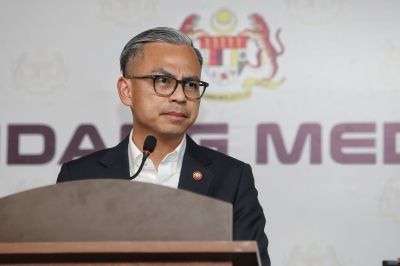PUTRAJAYA, Feb 7 — The Communications Ministry is set to provide an update next week on whether additional licences have been issued to social media companies.
This follows last month’s disclosure by the Malaysian Communications and Multimedia Commission (MCMC) that only four companies had applied for the required operating licences under a new regulatory framework aimed at safeguarding the public from online harm.
“Yes, I believe, God willing, next week, after Thaipusam, we will have more information,” Communications Minister Fahmi Fadzil told reporters at the weekly post-Cabinet press conference today.
Fahmi did not specify how many licences could be granted.
In its statement last month, MCMC confirmed that Tencent (WeChat) had obtained a licence, while Telegram was in the final stages of approval and expected to secure its licence soon.
Meta, which operates Facebook, Instagram, and WhatsApp, has begun the licensing process and is expected to complete it shortly.
However, as of last month, Elon Musk’s X (formerly Twitter) and Google had yet to submit their applications to MCMC.
“According to X, its user base in Malaysia has not reached the required threshold of 8 million users. Currently, MCMC is actively reviewing the validity of the user base as stated by X and will continue engagement sessions to assess X’s position.
“As for Google, there were issues raised on the video-sharing features of YouTube and its classification under the Licensing Framework.
“MCMC has deliberated on the issues raised and shall ensure YouTube as well as all relevant platform providers meeting the licensing criteria are bound by their duties and responsibilities to adhere to the licensing framework, which is now in force,” MCMC said in its statement in January 2025.
On July 27, 2024, MCMC mandated that all social media and messaging platforms with at least eight million registered users in Malaysia must obtain an operating licence.
The regulator warned that failure to comply by the enforcement date would constitute an offence under the Communications and Multimedia Act 1998, potentially leading to legal action.
Previously, Fahmi emphasised the importance of licensing social media platforms to tackle pressing online issues, including cyberbullying and child grooming.
He added that the ministry would closely monitor compliance with the new regulatory framework and take action against providers failing to enforce age restrictions.







